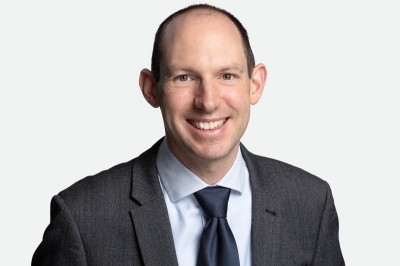Posted on April 04, 2025


The highly-anticipated hearing in important Case G 1/24 has now taken place, giving an opportunity for all sides to advance their arguments. The decision will have important implications for the assessment of patentability at the European Patent Office (EPO) and presents an opportunity to align its practice with the courts, including the rapidly-developing Unified Patent Court system.
The Enlarged Board of Appeal hearing G 1/24 took place on 28th March, the outcome of which will likely have major ramifications on how European patent applications are drafted in the future and how those applications are amended in the examination phase, as discussed in a previous article.
G 1/24 addresses a referral from Board of Appeal case T439/22, which centres around the use of the term “gathered sheet” in Philip Morris’s European Patent EP3076804. That term is given a broader definition in the description than is generally accepted by the skilled person in the art. The Opponent (Yunnan Tobacco International Co.) argued that claim 1 is not novel over the prior art, if using the definition of “gathered sheet” in the description. The Proprietor argues that the subject matter of the claim is novel, due to the claims having primacy. Diverging case law on this issue brought about the escalation of this matter to the Enlarged Board, leading to the referral of three questions:
- Is Article 69 (1), second sentence EPC and Article 1 of the Protocol on the Interpretation of Article 69 EPC to be applied to the interpretation of patent claims when assessing the patentability of an invention under Articles 52 to 57 EPC?
- May the description and figures be consulted when interpreting the claims to assess patentability and, if so, may this be done generally or only if the person skilled in the art finds a claim to be unclear or ambiguous when read in isolation?
- May a definition or similar information on a term used in the claims which is explicitly given in the description be disregarded when interpreting the claims to assess patentability and, if so, under what conditions?
Preliminary opinion
The Enlarged Board issued a brief preliminary view on these three questions ahead of the hearing. In short, the opinion indicated that questions 1 and 2 were admissible, with the Enlarged Board recognising the “interest in uniform application of the principles of claim interpretation both in patent grant proceedings… and also in post-grant revocation and infringement proceedings”, while question 3 was considered inadmissible, as “an answer to it is not required for the referring Board to reach a decision” and it was generally considered to be a sub-question of question 2.
Hearing
Opponent
During the hearing, the case put forward by the Opponent centred around the proposition of a new “diamond standard” for the EPC, whereby Article 69(1) is considered at the heart of claim interpretation. Arguments for a consistent approach to claim interpretation for both infringement and validity were put forward, as having a different rule pre- and post-grant “changes the rules of the game”.
Proprietor
Meanwhile, the Proprietor advocated that the primacy of the claims is key and that a patent is naturally drafted as an asymmetric document where the description is of lesser importance, citing basis in Article 84 EPC. They argued that the description should only be relied on in the case of an unclear term and anything further would lead to a reduction in legal certainty. In the Proprietor’s view, Article 69(1) EPC applies to the patent post-grant and therefore is only relevant to infringements.
President of the EPO
Comments were put forward on behalf of the President of the EPO in agreement with those of the Opponent, that the claims should be interpreted consistently both before and after grant, emphasising the importance of both Articles 69 and 84 EPC, and that both suggest that the claims should be interpreted using the description. However, they also acknowledged that the claims have primacy, and that the description is of secondary importance. Clarification was asked for on the amendment of the description during prosecution, but it is not yet clear if the Enlarged Board will address this in their decision.
Where are we now?
Members of the Enlarged Board remained largely silent throughout the proceedings, and the Chair did not shed much light on their opinion ahead of announcing their decision. Patent professionals throughout Europe eagerly await their formal decision in the coming weeks.
Please get in touch if you would like to discuss this topic further.
We are a European firm and assist our clients to protect their IP rights in the UK, Europe and worldwide from our offices in the UK and The Netherlands and through our international network of trusted local attorneys.

